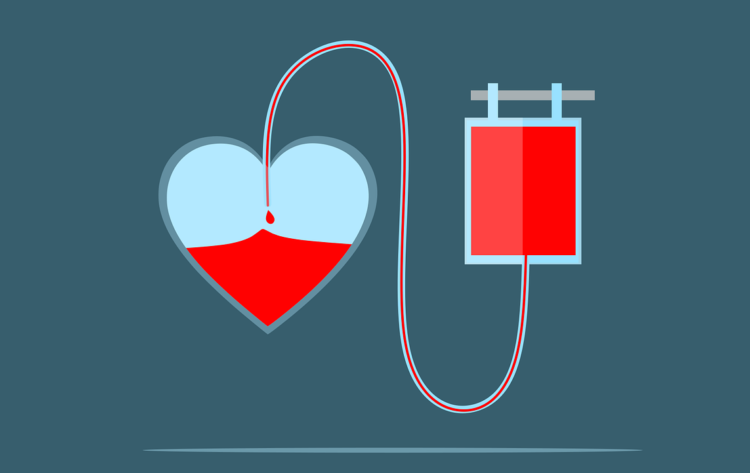As Nigeria joined the global community to commemorate World Blood Donor Day on June 14, with the theme “Give Blood, Give Hope, Together We Save Lives,” the reality of our nation’s blood crisis laid bare a fundamental truth: we are failing our most vulnerable citizens when they need us most.
With an estimated population of 200 million, Nigeria requires approximately two million units of blood annually, yet we fall dramatically short of this life-saving target, condemning thousands to preventable deaths.
According to federal health authorities, more people are now dying from lack of access to blood and blood products than from communicable diseases.
It is instructive to note that between 80-90 percent of maternal deaths in Nigeria are directly attributable to bleeding complications, with a significant portion caused by blood shortages. This is not merely a healthcare statistic; it is a national emergency that demands immediate, coordinated intervention from all levels of government and society.
The World Health Organisation (WHO) has made it abundantly clear that with Nigeria’s population, we need an estimated 1.8 million units of blood per annum. Yet voluntary, non-remunerated blood donation accounts for only 10 percent of total blood collection in the country.
The National Blood Service Agency reports that Nigeria receives merely 27 percent of its annual blood needs from voluntary donors, leaving a staggering shortfall of 73.3 percent. This deficit translates directly into human suffering and preventable deaths across the nation’s hospitals and clinics.
The transformation of the National Blood Service Commission into the National Blood Service Agency under the leadership of Professor Muhammad Ali Pate represents a commendable step toward institutional reform.
The agency has made notable strides, collecting over 12,500 units of blood through nearly 300 donor drives nationwide and reopening three previously shuttered state centres in Enugu, Calabar, and Potiskum. These achievements, while significant, barely scratch the surface of our national blood needs.
The challenges hindering adequate blood supply in Nigeria are multifaceted and deeply rooted. Cultural beliefs, myths, and fears continue to discourage voluntary blood donation among our citizens. Many Nigerians harbour unfounded concerns about blood donation affecting their health or spiritual well-being. Financial constraints and lack of awareness compound these issues, creating a perfect storm of supply shortages in the country’s healthcare system.
More troubling is the revelation that over 80 percent of blood collected in Nigeria comes from family replacement and commercial blood donors, sources that are inherently less safe than voluntary, unpaid donors.
The WHO emphasises that the most reliable and safest blood supply comes from a stable base of regular, voluntary, unpaid donors, as the prevalence of blood-borne infections is generally lowest among this group.
Our current reliance on commercial and replacement donors not only compromises safety but also perpetuates a system that fails our most vulnerable populations.
The human cost of this crisis extends far beyond statistics. Every day, expectant mothers face life-threatening complications during childbirth, accident victims struggle for survival in emergency rooms, and patients requiring complex medical procedures are denied care – all because of inadequate blood supply.
Children suffering from severe anemia due to malaria and malnutrition, patients with blood disorders, and victims of trauma and disasters all depend on readily available, safe blood for their survival.
The federal government’s recent emphasis on proper blood screening standards represents another crucial step forward. The reiteration that rapid test kits are unacceptable for blood screening, with ELISA technique remaining the minimum standard, demonstrates a commitment to quality and safety.
However, standards without adequate supply render these efforts meaningless to patients bleeding out in our hospitals.
We must launch a massive national awareness campaign to debunk myths and educate citizens about the safety and importance of voluntary blood donation.
Also state governments must take ownership of blood safety programmes in their respective jurisdictions. The reopening of shuttered blood centers is encouraging, but we need systematic expansion of collection points and mobile donation drives to reach underserved communities. Local governments should integrate blood drives into community events and make blood donation a civic responsibility akin to voter registration.
The federal government must also address infrastructure challenges by ensuring that blood banks have adequate equipment, storage facilities, and trained personnel. The partnership with organisations like HemoClear B.V. for autologous blood transfusion technology and Germany’s University of Medicine Greifswald for training programmes represents the kind of strategic collaboration needed to build enduring capacity.
Most critically, we must address the financial barriers that prevent many Nigerians from accessing blood when needed. While the National Blood Service Agency claims that accessing blood is free with only an assessment fee required, the reality for many families is far more complex. Hidden costs, transportation challenges, and bureaucratic hurdles often make blood inaccessible to those who need it most.
Nigeria cannot achieve its health-related Sustainable Development Goals (SDGs) while maintaining such dramatic shortfalls in blood availability. Our health system’s effectiveness is fundamentally compromised when patients die from preventable causes due to blood shortages.
As we reflect on this year’s World Blood Donor Day theme, “Give Blood, Give Hope, Together We Save Lives,” the emphasis on collective action could not be more relevant.
Nigeria’s blood crisis is solvable, but only through sustained, coordinated action across all sectors of society. The question is not whether we can bridge this life-and-death gap, but whether we have the collective will to do so. The lives of our mothers, children, and fellow citizens depend on our answer.





